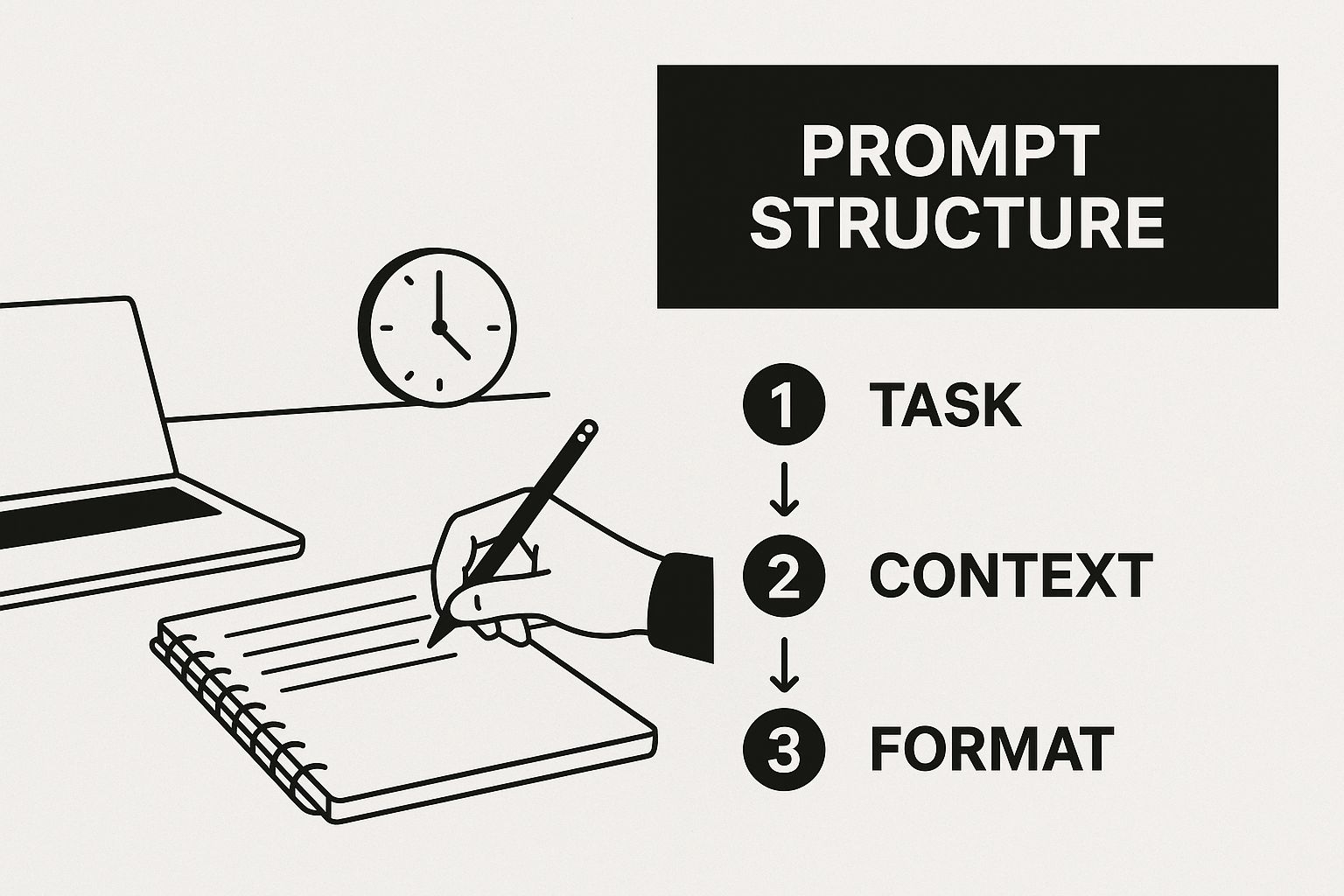How to Rank in ChatGPT: Tips for Better AI Search Rankings
Understanding the ChatGPT Search Revolution
ChatGPT has fundamentally changed how people find information online, creating a new search paradigm that businesses can't afford to ignore. With over 400 million weekly users by 2026, ChatGPT represents the biggest shift in information discovery since Google's early dominance. This isn't just another tech trend: it's a complete transformation of how consumers research products, services, and make purchasing decisions.
The challenge for businesses is that traditional SEO strategies only partially apply to AI-powered search. ChatGPT doesn't just crawl and index web pages like traditional search engines: it synthesizes information from its training data and presents single, authoritative answers. This means your content needs to be optimized not just for keywords, but for how AI models understand, process, and cite information. Success requires understanding ChatGPT's training sources, citation patterns, and ranking factors.
What GEO Experts Have Discovered About ChatGPT Rankings

Generative Engine Optimization (GEO) experts have been quietly studying ChatGPT's ranking mechanisms, uncovering patterns that most businesses miss. These specialists have discovered that ChatGPT's recommendations aren't random: they follow predictable patterns based on training data quality, source authority, and content recency. Understanding these patterns gives you a significant advantage in optimizing your content for AI visibility.
The most successful GEO practitioners focus on five core strategies that consistently improve ChatGPT rankings. These aren't theoretical concepts: they're proven techniques based on systematic testing and analysis of thousands of queries across different industries. By implementing these strategies, businesses have seen dramatic improvements in their AI search visibility and the frequency of their brand mentions in ChatGPT responses.
How to Rank in ChatGPT: 5 Proven Strategies

Check the Sources for Training Data
ChatGPT's recommendations are heavily influenced by its training data sources, and understanding these sources is crucial for optimization success. ChatGPT was extensively trained on Wikipedia, which explains why content that follows Wikipedia's structure and citation style often performs well. Additionally, OpenAI has secured training agreements with premium publishers including Financial Times, Prisa Media, Le Monde, and Reddit.
This means content that matches the editorial standards and formatting of these high-authority sources has a significant advantage. If your content reads like a well-researched Wikipedia article or follows the journalistic standards of major publications, ChatGPT is more likely to trust and cite it. Focus on creating comprehensive, well-sourced content with clear citations and authoritative references.
Follow the Citation Path
The URLs that ChatGPT cites most frequently are the ones it "knows" best from its training data. These highly-cited sources create a bias in ChatGPT's responses: when generating answers, the AI model gravitates toward information and patterns that appeared frequently in its training corpus. This creates a citation advantage for certain domains and content types.
Recent analysis of ChatGPT's citation patterns reveals the following distribution of source preferences:
- Wikipedia: 47.9% - Dominates as the primary reference source
- Reddit: 11.3% - User-generated content and discussions
- Forbes: 6.8% - Business and finance authority
- G2: 6.7% - Software reviews and comparisons
- TechRadar: 5.5% - Technology news and reviews
- NerdWallet: 5.1% - Personal finance guidance
- BusinessInsider: 4.9% - Business news and analysis
- NYPost: 4.4% - News and current events
- Toxigon: 4.1% - Gaming and entertainment content
To leverage this pattern, analyze what types of content and which websites ChatGPT frequently references in your industry. Structure your content to match the format, depth, and style of these frequently-cited sources. The goal is to get your content featured and cited by each of these platforms: contribute to Wikipedia pages in your industry, engage meaningfully on Reddit discussions, pitch expert insights to Forbes and BusinessInsider, get your product reviewed on G2, and create content worthy of TechRadar and NerdWallet coverage. Getting your content cited by already-trusted sources creates a pathway for ChatGPT to discover and trust your information through association.
ChatGPT Prefers Recent Content
ChatGPT shows a clear preference for recent, up-to-date information, especially for topics where timeliness matters. One simple but effective strategy is to "baptize" your articles with current year markers: include "2026" in your titles, headers, and content where relevant. This signals to ChatGPT that your information is current and relevant.
Beyond year markers, regularly update your existing content with fresh data, recent examples, and current statistics. Create content that addresses trending topics and current events in your industry. ChatGPT is more likely to recommend content that reflects the latest developments and most recent best practices.
Multiple Sites Should Recommend Your Product
ChatGPT places significant weight on external validation and consensus. When multiple authoritative sources mention or recommend your product or service, ChatGPT interprets this as a strong signal of quality and relevance. This "wisdom of crowds" approach means that brands mentioned across multiple trusted websites have a substantial advantage in AI recommendations.
Focus on building genuine mentions and recommendations across diverse, high-quality websites. This includes industry publications, review sites, news outlets, and relevant blogs. The key is authenticity: these mentions should be genuine recommendations based on actual value, not manipulative link schemes. Quality guest posting, thought leadership content, and building relationships with industry publications can help create these valuable external validations.
Traditional SEO Still Matters
While ChatGPT operates differently from traditional search engines, fundamental SEO principles remain important. High-quality content, domain authority, and technical SEO still influence how ChatGPT perceives and ranks your content. Websites with strong domain authority, comprehensive content, and excellent user experience signals are more likely to be trusted by AI models.
Focus on creating content that satisfies both traditional SEO requirements and AI optimization needs. This includes comprehensive topic coverage, natural language optimization, structured data markup, and building high-quality backlinks. The combination of traditional SEO strength and AI-specific optimization creates the most powerful foundation for ChatGPT ranking success.
Your Next Steps to ChatGPT Ranking Success
Ranking in ChatGPT isn't just about implementing one strategy: it's about creating a comprehensive approach that addresses all five core areas. Start by auditing your current content against the citation patterns we've identified. Are you following Wikipedia's editorial standards? Do you have mentions across the high-authority platforms that ChatGPT trusts most?
For a deeper understanding of what drives ChatGPT citations, read our comprehensive analysis of 400,000+ pages that reveals the exact factors determining whether content gets cited by ChatGPT.
Remember that ChatGPT optimization is a long-term investment, not a quick fix. The businesses that succeed are those that consistently apply these principles across their entire content ecosystem. As AI search continues to evolve, the fundamentals of quality content, authoritative sources, and strategic visibility will remain crucial for maintaining your competitive edge.
Ready to enhance your AI search visibility and optimize for ChatGPT? Sellm.io offers specialized GEO and brand monitoring within AI environments. Track your performance, optimize your content, and stay ahead of the competition with our comprehensive ChatGPT ranking tools and real-time AI visibility analytics.
Frequently Asked Questions
How do I rank in ChatGPT? ▼
To rank in ChatGPT, focus on five key strategies: optimize your training data sources (like Wikipedia-style content), follow citation paths from authoritative domains, create recent and updated content, maintain strong traditional SEO fundamentals, and build topical authority in your niche through comprehensive, expert-level content.
What factors influence ChatGPT rankings? ▼
ChatGPT rankings are influenced by training data quality, source authority, content recency, traditional SEO signals, and topical expertise. Content that matches Wikipedia's editorial standards, comes from high-authority domains, and demonstrates clear expertise in a subject area tends to rank higher in ChatGPT responses.
How long does it take to rank in ChatGPT? ▼
ChatGPT ranking is a long-term investment that typically takes 3-6 months to see significant results. Unlike traditional SEO, ChatGPT relies on training data and established authority patterns, so consistent application of optimization principles across your entire content ecosystem is essential for success.
Does traditional SEO help with ChatGPT rankings? ▼
Yes, traditional SEO fundamentals still matter for ChatGPT rankings. Strong domain authority, quality backlinks, technical SEO, and content optimization provide a foundation that supports AI visibility. However, ChatGPT also requires additional optimization for training data sources and citation patterns.
What content formats work best for ChatGPT? ▼
Content that follows Wikipedia-style formatting works best for ChatGPT: comprehensive articles with clear citations, authoritative references, logical structure with headings, and expert-level depth. Focus on creating definitive resources that demonstrate clear expertise and authority in your subject area.